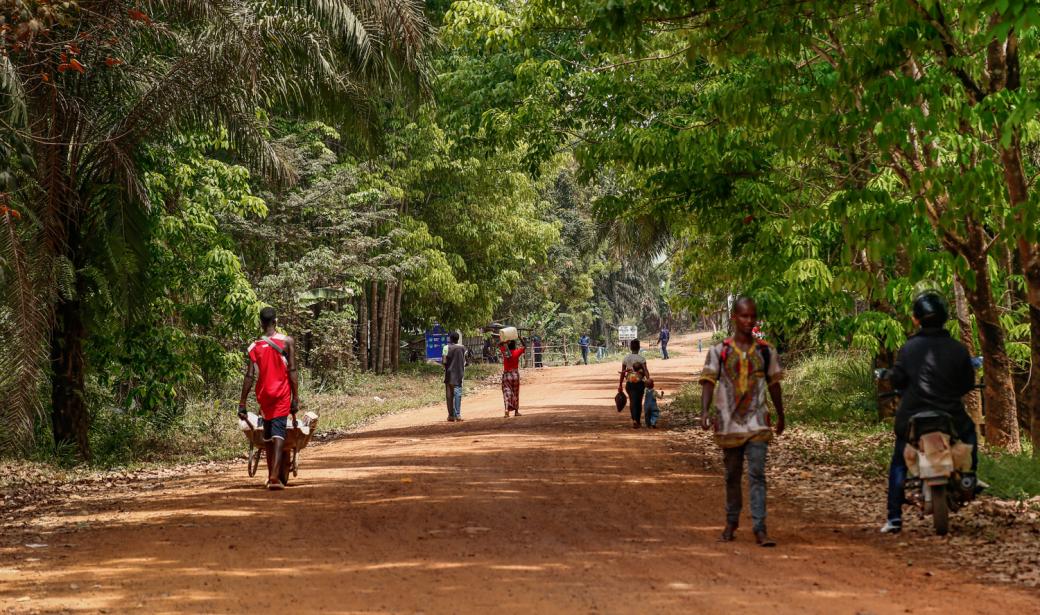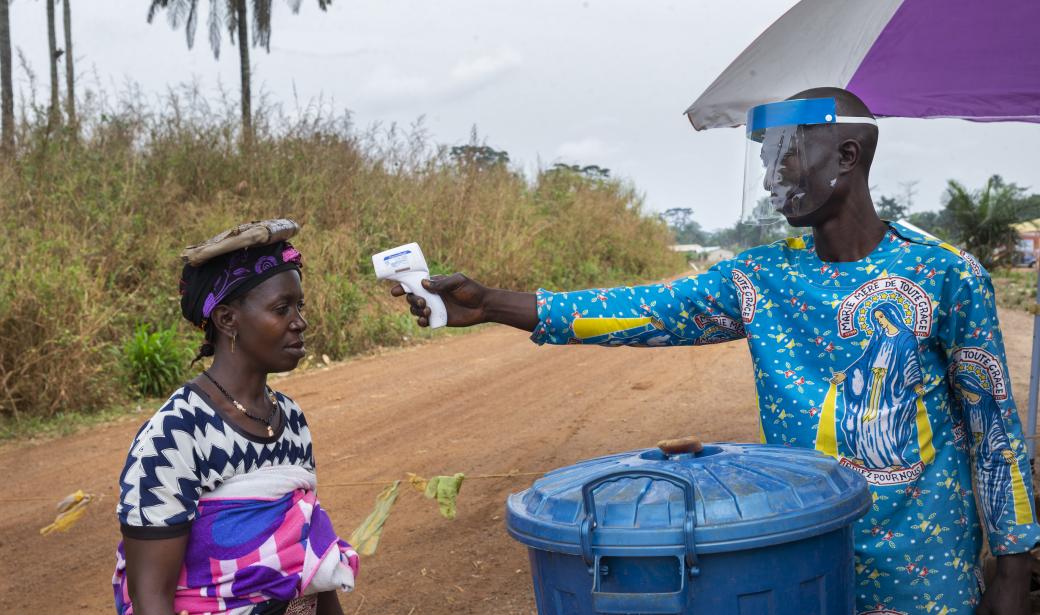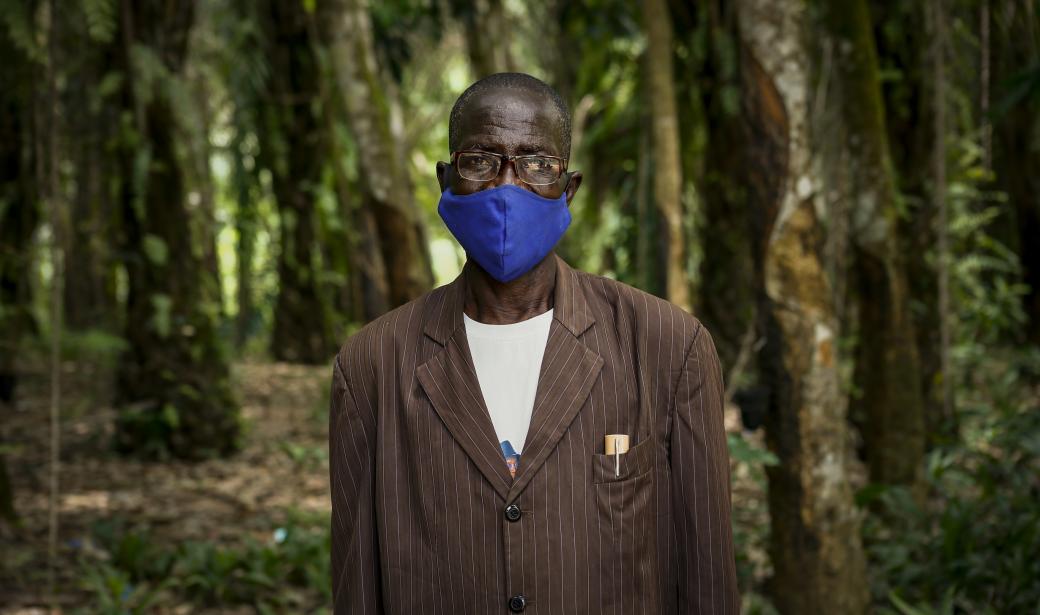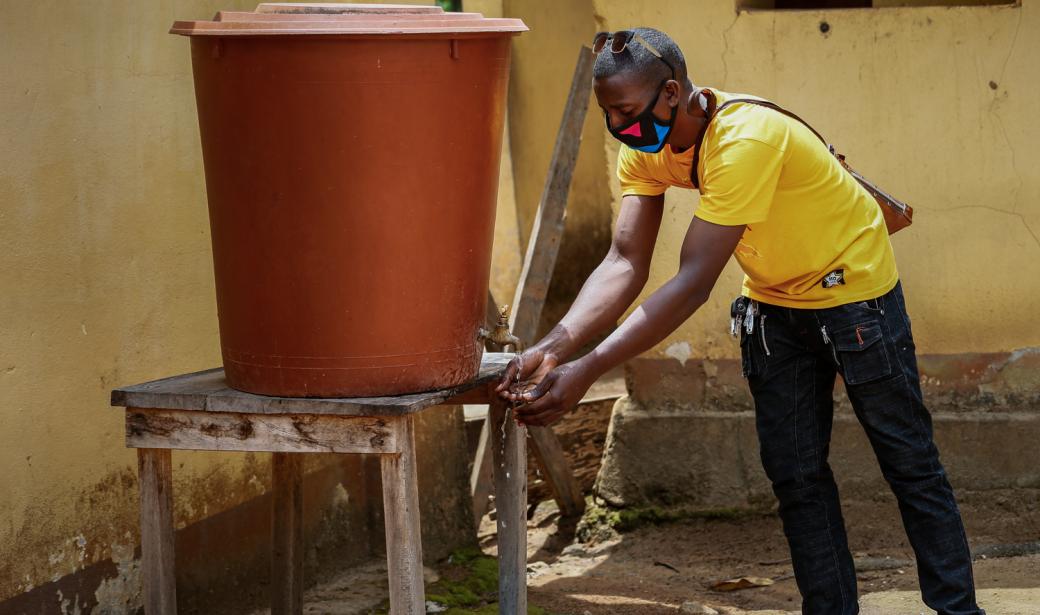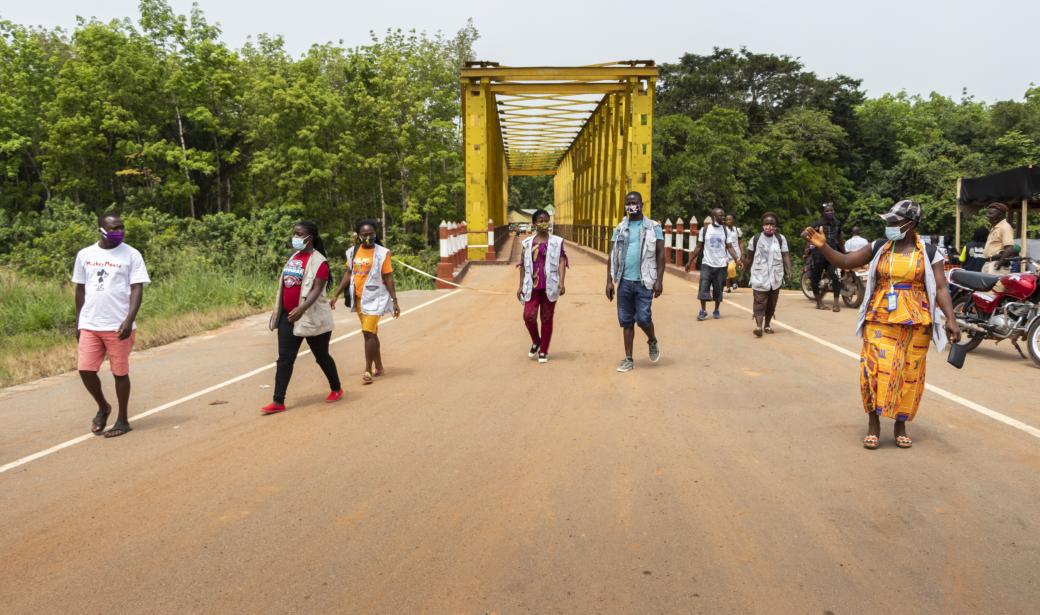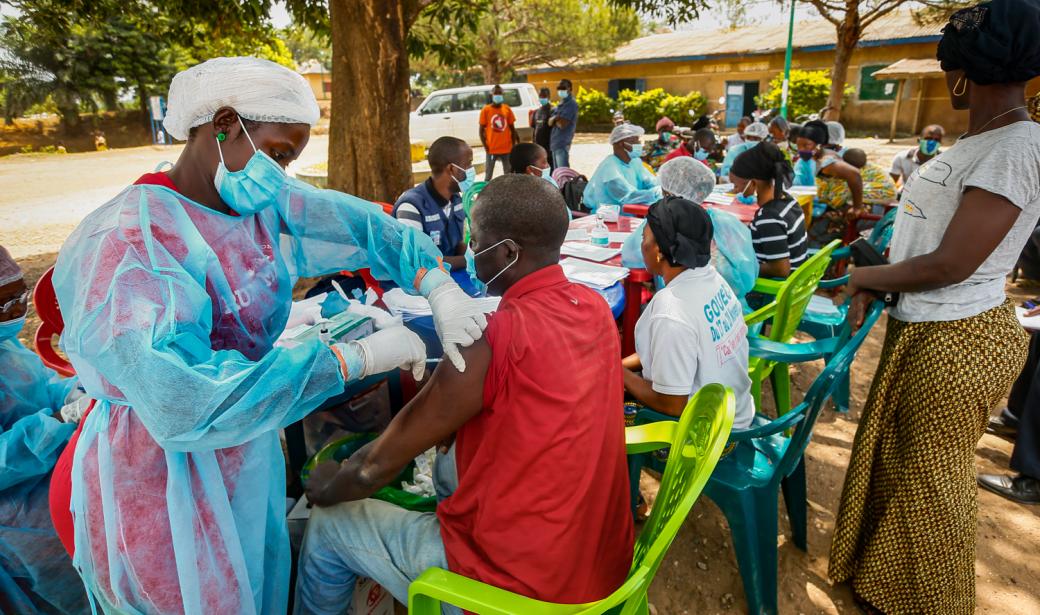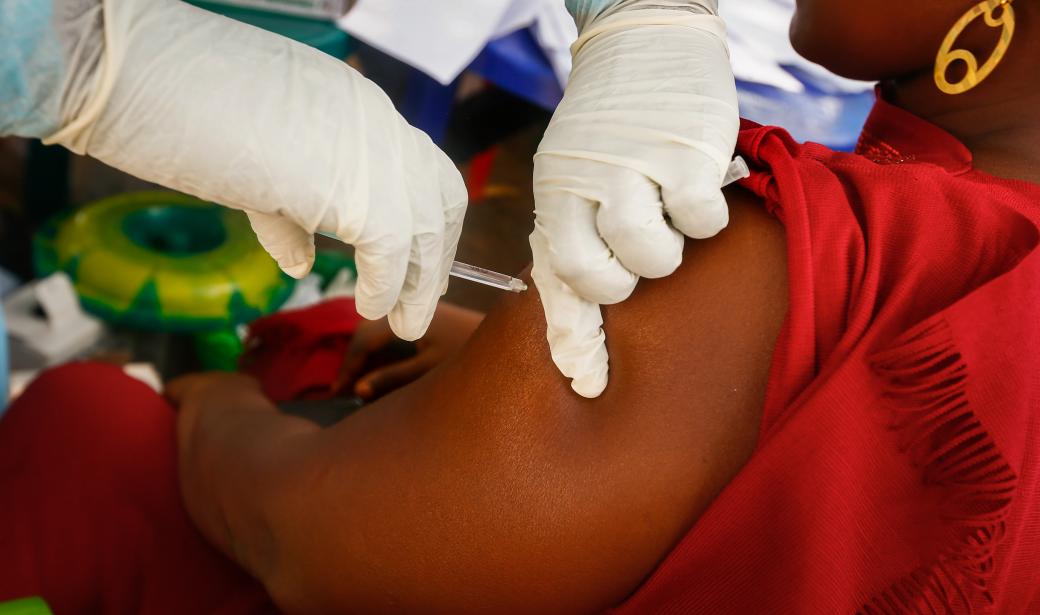Huge efforts have been made to curb the Ebola outbreak in Guinea. Building on experience and expertise gained in the 2014–2016 outbreak, Guinean health workers have been at the forefront of the response with the support of the World Health Organization (WHO) and partner organizations. Soon after the latest outbreak was declared, they swiftly deployed to the ground, establishing surveillance, contact-tracing, testing and treatment infrastructure as well as preparing for vaccinations to avert widespread infection.
Guinea declared an Ebola outbreak on 14 February after cases were confirmed the country’s south-eastern N’Zerekore prefecture. The health authorities, with the support from WHO, swiftly mounted a response, deploying teams to the ground to work with communities, set up treatment and preventive measures to curb the virus. To date, 23 cases (16 confirmed and 7 probable) and 12 deaths have been reported.
In Gouecke, a rural community where the Ebola cases were first detected, stations have been set up in entrances to towns and at health centres for temperature checks and handwashing. When a person shows symptoms, they are admitted to the local treatment centre where they are tested and monitored as part of the preventive and control measures.
“For the people, there is no border between the two countries. In the morning, they cross freely to go to work or business and return in the evening,” says Niankoye Delamou, the head of a village near the Guinea-Liberia border. WHO and partner organizations are working with community leaders so they take ownership of the Ebola response and support public education. Community involvement is critical in curbing Ebola.
Hundreds of Liberian traders returning from a weekly market in Guinea use the crossing point in Ganta, a border locality. In early March, the Ministers of Health from Guinea and six neighbouring countries agreed on a united front to combat the virus and strengthen preparedness. In the 2014–2016 outbreak, there were 28 000 cases and about 11 000 deaths.
For Additional Information or to Request Interviews, Please contact:
Vincent Defait
Communication Officer
Regional Office for Africa
Email: defaitv [at] who.int (defaitv[at]who[dot]int)



